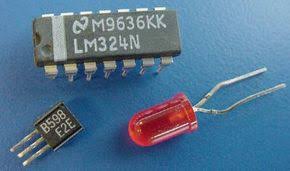The Biden administration issued its toughest restrictions on China’s use of cutting-edge computer chips and chip-manufacturing machinery on Friday, claiming that the country is using the technology to modernize its military and even manufacture weapons of mass devastation.
In order to prevent harm to the American chip industry, which is the backbone of the U.S. economy, and disruptions to the worldwide supply chain, the administration claimed it was concentrating only on the chips, actions, and companies in China that were of “most national security importance.”
Analysts claim that the action amounts to a new high-tech containment strategy, and it clearly shows how the United States is flexing its muscles in its rivalry with China.
However, officials admitted that without support from allies and partners abroad, the initiative could fail.
A senior administration official who spoke to reporters about the regulations on the condition of anonymity said, “We recognize that the unilateral controls we’re putting in place tomorrow will lose effectiveness over time if other countries don’t join us, and we risk harming U.S. technology leadership if foreign competitors aren’t subject to similar controls.”
The administration is attempting to move away from the traditional strategy of preserving a “relative” advantage in crucial technologies in favor of establishing “as great a lead as possible,” according to national security advisor Jake Sullivan.
Export restrictions put on Russia earlier this year by the US and 37 other nations show that such tools are capable of more than only preventing profits, according to Sullivan. In a speech at a global technology summit, he said, “They can be a new strategic asset in the U.S. and alliance tool kit to impose costs on enemies, and even over time diminish their battlefield capabilities.”
But William Reinsch, a top Commerce official in the Clinton administration who is now at the Center for Strategic and International Security, said that the success of that group effort simply highlights the necessity for similar cooperation from friends with current measures.
According to Reinsch, “This won’t work unless the impacted governments and businesses are prepared to cooperate.” You must constantly balance exercising just the right amount of control. You can limit your own team’s ability to invest in new technology if you have too much control.
In a statement, the Semiconductor Industry Association said it was “assessing the [rules’] impact” and will work with members to assure compliance. The association represents nearly all of the U.S. semiconductor industry by revenue as well as roughly two-thirds of non-U.S. chip manufacturers.
In order to level the playing field and lessen inadvertent harm to American innovation, the statement added, “We recognize the purpose of maintaining national security and urge the U.S. government to execute the guidelines in a targeted fashion — and in partnership with international partners.”
The chairman of the House Foreign Affairs Committee and Republican Rep. Michael McCaul of Texas said in a statement that the new regulations “are a step in the right direction and long overdue.” McCaul has blasted Commerce for what he calls a weak application of export controls. They “will strike at the root of the [Chinese Communist Party’s] strategic aims” if Commerce enforces them strictly. He claimed that lax enforcement “would undercut” their goal.
The administration’s action was referred to as “sci-tech hegemony” by the Chinese Embassy. The administration is attempting to “hinder and repress the development of emerging markets and developing countries,” according to a statement from spokesman Liu Pengyu.
Among the new steps, the government is implementing a harsh trade rule that affects the entire world and is intended to prevent chipmakers from exporting cutting-edge chips to China for use in supercomputers, artificial intelligence, and other related technologies.
If companies use American technology to manufacture the advanced chips, as nearly every semiconductor company globally does, the use of the foreign direct product rule (FDPR) will prevent companies from anywhere in the world from selling advanced chips to Chinese firms or organizations involved in AI and supercomputing activities without a U.S. government license.
The administration is also taking tougher action against 28 Chinese businesses and military institutions that are already on the Entity List, a trade blacklist that forbids exporters from sending those goods from the US without a permit. Officials stated that those parties will now be subject to an FDPR that will limit their access to various foreign-produced technological goods, not just chips, developed with American techniques and designs.
The Department of Commerce is also trying to limit China’s capacity to make its own premium chips. For the time being, China continues to lag behind Taiwan, South Korea, and the US. These restrictions would essentially prohibit the export of American-made equipment required for high-end chip manufacture in China as well as the shipment of American equipment or components to Chinese factories with the capacity to produce chips above or below a specific threshold.
The majority of these thresholds are two to three generations behind the most advanced semiconductor technology, but analysts said they nevertheless represent where China is at the moment.
Additionally, Commerce will forbid “U.S. individuals” from contributing without a permit to the creation or manufacture of such chips for China. This includes American factories and Americans employed abroad in foreign factories.
In a statement released on Friday, Alan Estevez, undersecretary of commerce for industry and security, said, “My north star at [the Commerce Department’s Bureau of Industry and Security, which enforces export controls] is to ensure that we are appropriately doing everything in our power to protect our national security and prevent sensitive technologies with military applications from being acquired by the People’s Republic of China’s military, intelligence, and security services.”
Senior administration officials claimed that the technology powered by these chips is also utilized for widespread surveillance and to facilitate violations of human rights.

















